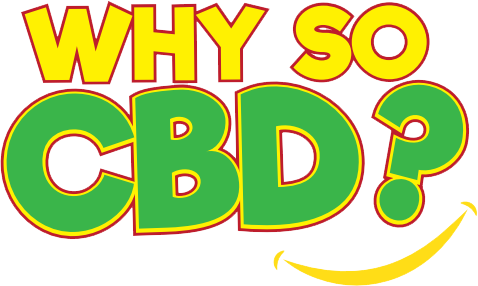Mental health challenges such as anxiety, stress, and depression are becoming increasingly common in today’s fast-paced world. As people search for natural remedies, both cannabis and CBD (cannabidiol) have emerged as popular options. But when it comes to mental health, why is CBD often considered the better choice? In this comprehensive guide, we’ll dive deep into the differences between cannabis and CBD, explore their effects on mental health, and explain why CBD is a safer, more effective option for long-term well-being.

Understanding the Basics: Cannabis vs. CBD
To understand why CBD may be a better choice for mental health, it's essential to first break down what cannabis and CBD are, and how they differ.
What Is Cannabis?
Cannabis is a plant containing over 100 cannabinoids, the most notable being THC (tetrahydrocannabinol) and CBD (cannabidiol). THC is responsible for the psychoactive effects or the "high" associated with cannabis. While it may provide temporary relaxation or euphoria, it also has potential side effects such as paranoia, impaired memory, and dependency risks.
What Is CBD?
CBD, derived from the cannabis plant (often from hemp), is a non-psychoactive compound. Unlike THC, it does not induce a high, making it a popular option for those seeking therapeutic benefits without altering their state of mind. CBD interacts with the endocannabinoid system (ECS) to regulate mood, stress, and overall mental health.
The Effects of Cannabis on Mental Health
While cannabis is often used recreationally, its impact on mental health can be complex and sometimes counterproductive.
Short-Term Relief vs. Long-Term Risks
- Short-term benefits: Cannabis can temporarily reduce anxiety, stress, and even depression in some users due to its sedative effects.
- Long-term risks: Regular use, especially of high-THC strains, may lead to dependency, exacerbate anxiety, and even trigger psychosis in individuals predisposed to mental health conditions.
THC and Mental Health
High levels of THC have been linked to:
- Increased anxiety and paranoia.
- Cognitive impairment.
- Potential worsening of conditions like schizophrenia.
While some people benefit from THC in controlled settings, its unpredictable effects make it less suitable for consistent mental health management.
CBD: The Safer, More Effective Alternative

How CBD Supports Mental Health
CBD is widely praised for its ability to promote relaxation, reduce anxiety, and support overall well-being. Its non-intoxicating nature allows users to integrate it into daily routines without disrupting productivity or mental clarity.
Key Benefits of CBD for Mental Health
- Reduces Anxiety: CBD has shown to regulate serotonin levels, mimicking the effects of anti-anxiety medications but without harsh side effects.
- Improves Sleep Quality: Poor sleep often worsens mental health issues. CBD can enhance sleep by calming the nervous system.
- Manages Stress: By interacting with the ECS, CBD helps maintain a balanced response to stressors, making it ideal for high-pressure situations. Learn more about managing stress with CBD in our article on how CBD can help you stay focused and manage stress during back-to-back meetings.
- Reduces Inflammation: Inflammation in the brain has been linked to depression and other mental health disorders. CBD’s anti-inflammatory properties may mitigate these effects.
CBD vs. Cannabis: A Detailed Comparison
1. Psychoactive Effects
- Cannabis: Contains THC, which can cause a high, paranoia, and dependency.
- CBD: Non-psychoactive, ensuring mental clarity and focus.
2. Safety Profile
- Cannabis: Can lead to addiction, impaired memory, and exacerbation of anxiety.
- CBD: Considered safe with minimal side effects like dry mouth or mild drowsiness.
3. Accessibility
- Cannabis: Heavily regulated, often requiring prescriptions or medical approval.
- CBD: Widely available in the UK as oils, gummies, capsules, and e-liquids.
Scientific Backing: Why Experts Recommend CBD
Numerous studies back the use of CBD for mental health:
- Anxiety Disorders: A 2019 study in The Permanente Journal found that 79% of participants experienced reduced anxiety after using CBD.
- Depression: Research suggests CBD influences serotonin receptors, which play a key role in mood regulation.
- PTSD: Studies show that CBD can help alleviate PTSD symptoms, including nightmares and hypervigilance.
For more on why CBD outshines cannabis in various wellness scenarios, check out our blog Why CBD Is the Superior Choice Over Cannabis for Wellness and Relief.
How to Use CBD for Mental Health

1. Start with a Low Dose
It’s best to start small and gradually increase the dosage based on how your body responds.
2. Choose the Right Product
- CBD Oils: Ideal for quick absorption.
- CBD Gummies: Convenient and long-lasting.
- CBD Capsules: Precise dosing for consistent results.
3. Consistency Is Key
CBD works best when taken regularly. Many users notice significant improvements within 2–4 weeks of consistent use.
Potential Side Effects and Considerations
While CBD is generally well-tolerated, some users may experience mild side effects such as:
- Dry mouth.
- Drowsiness.
- Changes in appetite.
Always consult with a healthcare professional before starting CBD, especially if you are on other medications.
FAQs: CBD vs. Cannabis for Mental Health
Can CBD and Cannabis Be Used Together?
Yes, but it’s essential to consult a doctor. Combining THC and CBD may balance some of THC's psychoactive effects but isn't always necessary for mental health support.
Is CBD Addictive?
No, CBD is non-addictive and can even help reduce addiction-related behaviors in some cases.
How Long Does CBD Take to Work?
Effects vary but are typically felt within 15–45 minutes for oils and 1–2 hours for edibles.
Why CBD Is the Better Choice
For mental health support, CBD stands out as the superior choice over cannabis. Its non-psychoactive nature, minimal side effects, and strong scientific backing make it an ideal option for managing anxiety, stress, and depression.
Unlike cannabis, which can come with risks of dependency and cognitive impairment, CBD offers a balanced, holistic approach to mental well-being. If you’re seeking a safe, natural way to improve your mental health, consider incorporating CBD into your daily routine.
